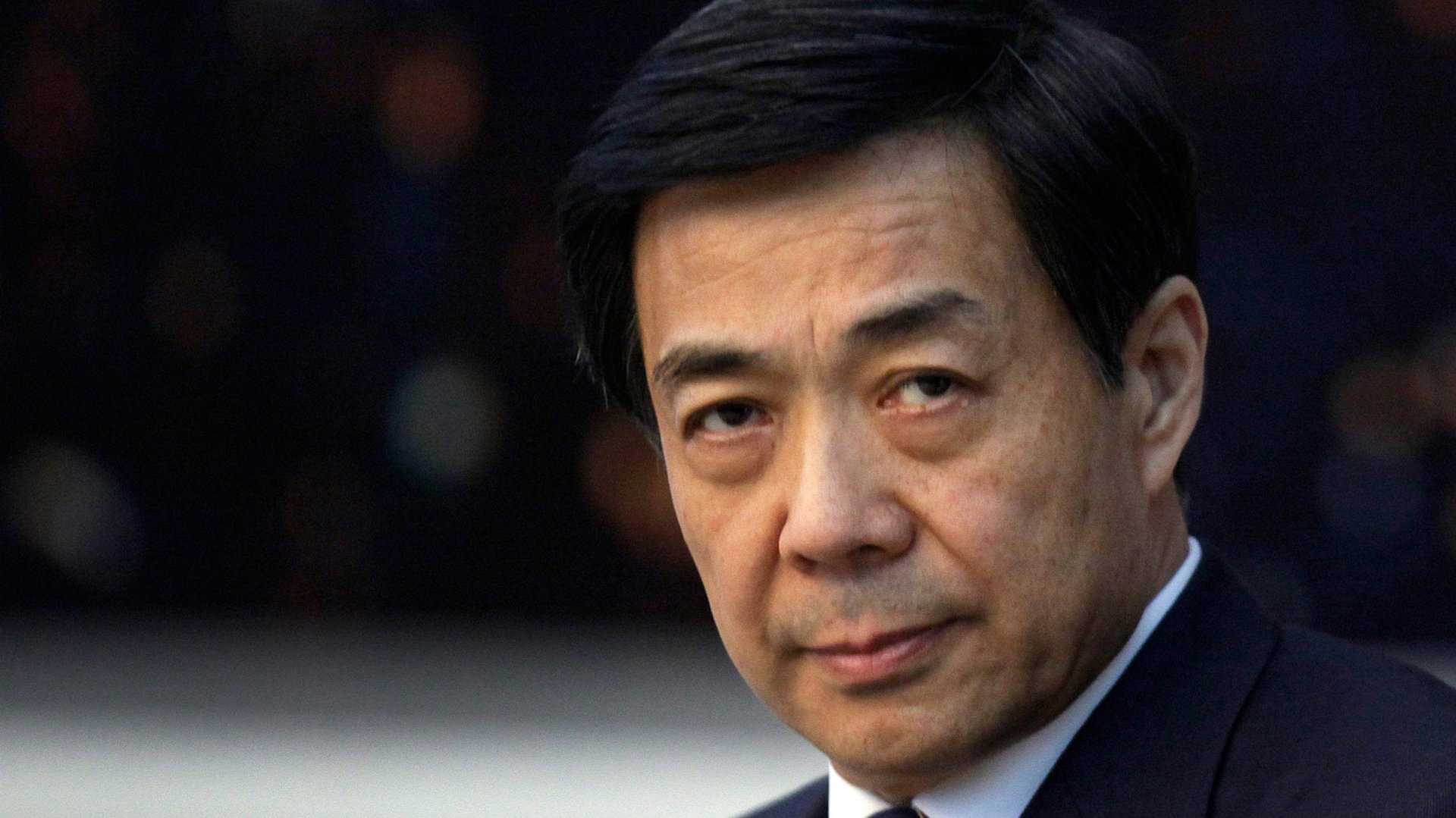Bo Xilai’s indictment: A master class in stage-managing a show trial
For a scandal that began with a police chief frantically seeking shelter in a US consulate, the trial of Bo Xilai is shaping up to be a very carefully controlled affair. The former Politburo member was charged with bribery, corruption and abuse of power on Thursday after spending nearly a year in detention at an unknown location.


For a scandal that began with a police chief frantically seeking shelter in a US consulate, the trial of Bo Xilai is shaping up to be a very carefully controlled affair. The former Politburo member was charged with bribery, corruption and abuse of power on Thursday after spending nearly a year in detention at an unknown location.
The ground was carefully prepared for the news, with foreign and Chinese news outlets running stories about his imminent indictment well ahead of the announcement. “When the CCP wants to leak news a day early, they’re as good as any PR firm at placing it in major news outlets,” Bloomberg’s Adam Minter noted on Twitter.
On China’s social networks and microblogs, where users play a cat-and-mouse game with internet censors to publish sharp commentary on breaking news, the authorities were braced for impact by the time the news broke. The State Council Information Office, which issues instructions to the media and internet censors, sent a directive on Wednesday that was subsequently leaked and published by China Digital Times: “Without exception, delete pro-Bo [Xilai] messages on interactive platforms, including forums and weibo.”
With anti-government messages mostly deleted, what were left were a surge of messages that toed the party line. Beijing frequently uses a cadre of paid commentators, including some prison inmates, who are known derisively as the “50 Cent Party” for the amount they’re paid per message. On Thursday the 50 Cent phrase of the day was apparently “determination to fight corruption,” as it was found in nearly half of the comments on the state-run Xinhua news agency’s online coverage of Bo’s indictment, according to Tea Leaf Nation.
The Wall Street Journal reported that Sina Weibo posts—at least those not deleted by censors—”largely parroted state-media editorials,” which trumpeted the charges against Bo as evidence of the state’s crackdown on corruption. Off-message posts like “Bribery, corruption and abuse of power–how many officials aren’t guilty of these three crimes?” were deleted at once, although legal scholar Xu Xin’s somehow survived: “This was also decided long ago. This case has absolutely nothing to do with hearings or prosecution.”
Attention will now shift to the trial itself, which will be even more tightly stage-managed than the roll-out of charges. Bo’s wife, Gu Kailai, has already received a suspended death sentence for her role in the murder of English businessman Neil Haywood, which in China means she will likely spend her life in prison. Wang Lijun, the former police chief and Bo confidant who set off the scandal by fleeing to the US Consulate in Chengdu, has been sentenced to 15 years in prison for a range of charges including accepting bribes and “bending the law for selfish ends.”
Experts predict that Bo will receive a lengthy prison sentence or suspended death sentence similar to his wife. Regardless, the outcome of the trial that will start as early as next month has almost certainly been decided already.